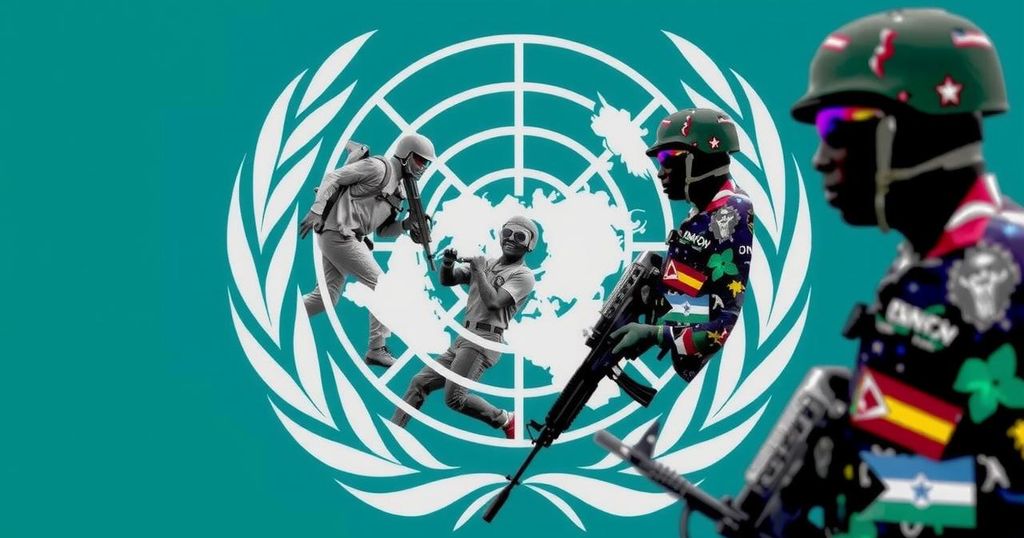Congo’s Bid for U.N. Peacekeeper Withdrawal Complicated by Escalating Violence
The Democratic Republic of the Congo’s desire to expel U.N. peacekeepers is complicated by increasing violence from Rwandan-backed rebels, delaying a planned withdrawal initially set for December. Amid ongoing clashes, the safety of civilians remains precarious as the situation in the mineral-rich eastern region continues to deteriorate, prompting discussions for a revised timeline for the peacekeeping force’s departure.
The Democratic Republic of the Congo (DRC) has expressed a desire to terminate the presence of United Nations peacekeepers in the mineral-rich eastern region. This request, however, is complicated by an escalation in violence attributed to Rwandan-backed rebel groups. Originally scheduled for withdrawal in December, the peacekeeping mission, known as MONUSCO, has been extended amid ongoing tensions and frequent clashes. MONUSCO has been embedded in the DRC for over two decades with approximately 14,000 personnel on the ground, primarily concentrated in the eastern provinces. The government in Kinshasa aims for a transition to self-governance and security, yet the instability posed by various armed factions—including the M23 rebels, who reportedly receive support from Rwanda—has led to calls for MONUSCO to remain. In recent months, the humanitarian toll has surged, with thousands displaced by violence, exacerbating the situation for individuals caught in the conflict zones. During a visit to frontline areas such as Sake, local militias, known as Wazalendo, expressed their commitment to defending the communities against foreign insurgents. Despite the presence of multinational forces, many Congolese feel abandoned by the U.N., leading to protests against peacekeepers that have turned violent in some cases. As the DRC grapples with its complicated relationship with the U.N. mission, a new timeline for the peacekeepers’ withdrawal is under discussion, though specifics remain unclear. Militias continue to assert control over certain territories, jeopardizing the safety of civilians. Moreover, the region’s mineral wealth, including substantial reserves of cobalt and tantalum, contributes significantly to global supply chains for electronics. The escalating conflict, intertwined with geopolitical interests, hinders both local stability and international efforts in the region, leaving civilians in a precarious position.
The peacekeeping mission in the Democratic Republic of the Congo (DRC), established over twenty years ago, aims to provide stability in a region plagued by conflict and armed groups. The eastern provinces of the DRC are particularly vulnerable due to their rich mineral resources, which have historically fueled violent struggles, including foreign intervention and local insurrections. The presence of U.N. peacekeepers has been critical in maintaining some level of security; however, growing dissatisfaction among Congolese citizens and the government complicates the future of MONUSCO’s operations. The DRC’s desire to assume full control coincides with rising tensions linked to rebel factions and foreign influences, particularly from Rwanda, leading to a volatile situation characterized by frequent violence and humanitarian crises.
In conclusion, the situation in the Democratic Republic of the Congo presents a complex interplay of local desire for independence from international peacekeeping forces and the harsh realities of ongoing conflict stoked by external and domestic threats. The government’s push to oust MONUSCO reflects long-standing frustrations, yet the persistent violence, primarily driven by factions like the M23 supported by Rwanda, complicates any plans for a safe and timely withdrawal. As armed groups continue to exploit the region’s lucrative mineral wealth, the international community faces challenges in addressing both the humanitarian crisis and the geopolitical implications of the conflict.
Original Source: apnews.com




Post Comment